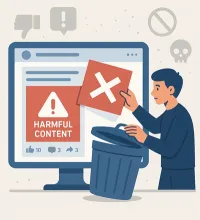The Government of India has implemented such a policy to combat the ever-increasing cybercrime of hacking, online fraud and data theft. With the growing popularity of digital transactions (i.e., online banking, online shopping, and mobile applications), attaining an online safe and secure environment is currently a vital need for both individuals and institutions. For this purpose the policy itself has stressed on Cyber Security skill training for the public and also the promotion of technology for offence, monitoring and quick response.




